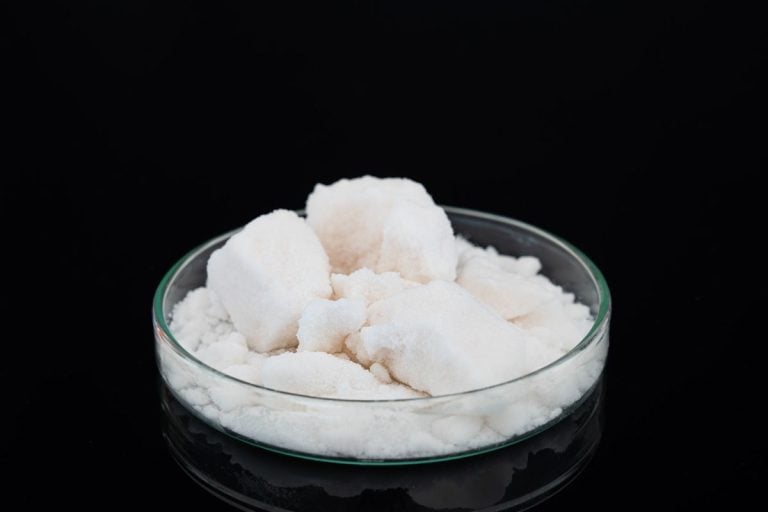How Long Will My Puppy Poop Worms After Deworming?
Keeping your puppy healthy means regular visits to the vet and deworming them is important if you want them to be free from parasites.
Deworming is a process that is relatively free from hassle and can be done by following a few steps.
Once your puppy is dewormed, you may be wondering ‘how long will my puppy poop worms after deworming’.
Typically, puppies will excrete worms for two to three days after they have received their deworming medications.
However, worms can still be visible in your puppy’s poop up to one week after the deworming, which is normal.
Worms can affect your dog at any phase of his life, be it puppyhood or adulthood. As a dog owner, you should know how to deal with these parasites to keep your puppy safe and healthy.
This article will provide you with information about the causes of worms, types of worms, signs to watch out for, prevention of worms, how to deworm a puppy, benefits of deworming your puppy, and many more.
How Do Puppies Get Worms?

While puppies are adorable, they are also curious. This means that there are different ways in which your puppy can get infected by worms including the following:
Transmission From Mother To Puppy
Worms can easily be transmitted from mother to puppies, and this is a very common situation.
Worms such as roundworms can be transmitted to the puppies when they are still in the uterus. Another form of transmission is through the milk of the mother when the puppies are nursing.
Ingesting Worm Larvae And Eggs
Puppies like to lick and taste everything as this is how they explore the world around them. However, they may ingest lots of dirt in the process. Soil, grass, and debris are possible carriers for worm larvae and eggs.
When an animal that is infected poops, they leave worm eggs on different surfaces. Your puppy may ingest the larvae and eggs then be infected if they come in contact with these surfaces.
Transmission From Other Animals
Parasites can transmit easily from one animal to another, that is why it is important if you have several pets in your home to deworm them regularly.
Worm eggs can be transmitted from one animal to another through contaminated food, feces, and contaminated surfaces. It is crucial that you keep your puppy from ingesting other pets’ excrements.
Fur
Since puppies like to groom themselves, they may ingest worm eggs in the process of licking their fur. Your puppy will come in contact with dirt if they are interacting with the environment.
Therefore, ensure that you keep your puppy clean by bathing them regularly as this will reduce them carrying the worm larvae and egg on their fur.
Fleas
Fleas carry worm larvae, and your puppy is at risk of worms if they are infested with fleas. Ensure that you have a regular grooming session for your puppy so that they are protected from these pests.
Signs That Your Puppy Has Worms

Catching worm infestation at an early stage will save you a lot in the long run. This is because if worm infection is not treated early, they may lead to health complications. The following are the signs that your puppy has worms:
If you notice that your puppy is vomiting or pooping worms, they are infected. However, some parasites may not be visible to the naked eye.
Bloating is another common sign especially for nursing puppies if they have contacted the worms from their mother.
Stunted growth and weight loss may indicate that your puppy is infected by parasites. Worms affect the ability of your puppy to absorb nutrients, making them lose weight.
Naturally, puppies are curious and playful. If you notice that they are weak and lethargic, take them to the vet to be checked for worms.
If your puppy eats more than usual and is constantly hungry, they could be suffering from worm infestation.
Some worm infestations can be asymptomatic and may not manifest, that is why you should deworm your puppy regularly.
What Types Of Worms Are Found In Puppies?
The following are the different types of worms that can infect your puppy:
Roundworms
These types of worms are common in puppies and are transmitted to them from their mother during nursing or in the worm. Common signs that your puppy is infested by roundworms include weight loss, bloating, and diarrheas.
Hookworms
Hookworms can heavily damage the health of your puppy. These small parasites attach themselves to the small intestines and absorb nutrients and blood from the body.
They can cause weakness, anemia, and loss of appetite. Early treatment is necessary because they can be fatal in severe cases.
Tapeworms
Tapeworms are commonly transmitted by fleas, and they are asymptomatic in most cases. However, they can be visible in your dog’s poop.
Whipworms
They are threadlike and small parasites that majorly affect the large intestines. Some symptoms of whipworm infestation include anemia, malnutrition, and sometimes bloody stool.
To diagnose this worm, your vet will need stool samples as they are detected microscopically. Whipworms can be fatal if left untreated, hence needing speedy treatment.
Coccidia
These types of worms are common in puppies from pet stores and puppy mills. They mostly affect puppies hence rarely found in adult dogs. Symptoms include bloody diarrhea and dehydration.
How To Deworm Your Puppy
Do not be scared if you find worms in your puppy’s poop or if your puppy shows signs of worm infestation. There are various medications present for deworming and your vet will advise you on which medication to give your puppy.
Usually, dewormers come in tasty tablets for your puppy to easily take it. For the puppies who give you challenges in taking the tablet; you can hide it in their food or treats.

Medications for deworming are broad-spectrum and effective against different types of parasitic worms. The dosage that is appropriate for your puppy depends on their body weight, hence, consult with the vet first.
How Long Will Your Puppy Poop Worms After Deworming?
The worms you see in the dog’s stool vary based on the type of parasites they carry and the severity of the infection. Some worms will not shed at all in the stool while others will be present in the stool for some days.
When your puppy is shedding alive or dead worms, it should end in 3-4 days. Usually, the deworming medication starts working within 12 hours and within 5 days it can take care of the basic parasitic infections.
It is recommended to reach out to the veterinarian if the dog still has worms in the poop after the completion of treatment because some pets need two treatments to end their intestinal worm infections.
If the puppy is infected with the protozoan infections like coccidia, no worms will be seen in the stool. The treatment for coccidia can last up to two weeks because they can be tough to kill. Conditions like these require a fecal test to ensure all eggs are banished.
Importance Of Deworming Your Puppy
Worms in puppies can cause some health problems. Worms steal some of the minerals, vitamins, and calories that your puppy consumes. This can affect the absorption of the nutrients resulting in malnutrition and possibly death.
Sometimes, the worms can also go to other parts of the body like the heart and the lungs. Worms can result in a chain reaction of poor health causing the puppy to suffer from several other ailments.
Some worms such as roundworms are zoonotic and can cause serious health problems, especially in children.
Seek treatment immediately because the vet will be able to tell the problem with the stool. The vet will examine the poop at a microscopic level and tell the exact type of worm causing the problem. Then the vet will be able to give the right dewormer to your pup according to the worms found.
How Often Should You Deworm Your Puppy
It is recommended to deworm your pup from two weeks of age and every two weeks from then, till the dog is three months old.
After three months, you can scale down to deworming the puppy monthly until they are six months. When the puppy gets to the age of six months, you start now deworming every three months.
Worms can be transmitted from mother to puppy, therefore, ensure that you deworm the mum as well. Deworm the mother during mating and before the birth of the puppies. It ensures the puppy does not get infected through contact or nursing by the mother.
Side Effects Of Deworming
Deworming medications are most safe for the puppy. However, the pup may experience some of the following side effects after deworming:
Bloody stool – If you find that your puppy’s stool has blood, do not panic because this often happens when the worms are detaching from the intestines. However, consult your vet if the bloody stool continues for more than three days.
Diarrhea – after deworming, puppies may experience diarrhea. It happens as a result of inflammation that occurs when the worms unlatch from the intestines. Your puppy should be fine if diarrhea lasts only a couple of days.
Lethargy – the puppy might not be playful as usual after deworming because of the discomfort diarrhea cause. Give them plenty of water to prevent dehydration during this time.
How To Prevent Worms In Puppies
It is part of the doggy experience to have worms and the puppy is going to pick these parasites at some point. However, you can practice some measures to minimize the infections risks:
Regular deworming of pets – It is important to stick to a regular schedule of keeping your puppy healthy.
Pick up after your puppy– After deworming, your puppy can pass worms in the poop. Therefore, pick up after the dog to minimize reinfections. Dog poop is the biggest carrier of worm eggs and worms, therefore, dispose of it off.
Ensure to treat your puppy’s fleas – Often, fleas carry worm larvae and eggs, which can easily cause parasitic infections, so treat them.
Wash of hands after handling your puppy – Puppy can carry the worms in the fur. Therefore, ensure that you wash your hands every time you handle your puppy and when you prepare their meals. It also helps in preventing reinfections.
Ensure your puppy’s meals and water are clean – this will help prevent ingestion of worms from contaminated water and food. Clear the bowls and food regularly. Vegetables should be washed thoroughly too.
Can Worms Be Transmitted To Humans?
Yes, some worms are zoonotic because some worms that infect puppies can also infect humans. Some of the zoonotic intestinal parasites include hookworms, coccidian, and roundworms.
Tapeworms are uncommon to be transmitted from dogs to humans. Therefore, you need to be very careful about disposing of your puppy’s poop and general hygiene. Worm eggs and larvae in dog poop can stay for long periods on soil and grass.
Drinking contaminated water or eating contaminated food can also lead to infections. Therefore, it is important to keep small kids from eating anything contaminated with dog poop.
Be extra careful with how you handle dog poop and vomit. Ensure also to pick up any stool from the yard to prevent soil contamination. You can get back to normal once the deworming treatment is complete.
FAQS

What Should I Expect After Deworming a Puppy?
Deworming treatments can take as quickly as 2-6 hours to kill the worms and when your puppy poops, you will notice bits or whole of the worms being passed depending on the deworming medication administered.
You might find that some worms come out alive and it can be gross, but they will die soon. Ensure to clean up immediately after handling your puppy’s poop and wash your hands with antibacterial soap immediately.
How Long Does It Take for a Dewormer to Work in Puppies?
The first dose administered to the puppy takes around 12 hours to kill the living worms in the stomach. However, it may not kill the eggs the worms had.
Therefore, a second deworming is advised two weeks later to kill off the remaining worms and the hatched eggs.
How Long until Tapeworms are gone after Deworming?
Tapeworms take 24 hours before they are completely gone after deworming. You may choose an injectable dewormer or a tablet. Tapeworms normally get dissolved in the intestines completely, hence, can’t be seen in the puppy’s poop.
Is It Safe to Deworm a Puppy Twice?
Yes, deworming a puppy is safe. Puppies are vulnerable to parasitic infections, therefore, they should be dewormed often to keep them healthy.
Can a Puppy Eat After Deworming?
Yes, your puppy can eat as usual after deworming. After deworming, there are no dietary restrictions required. However, you may notice that your puppy has a reduced appetite after deworming.
Ensure that your puppy takes enough water to prevent dehydration and that it can eat some food.
Are Worms Dangerous for My Puppy?
Worms are not only gross, but they also can cause complications for your canine companions. Worms left untreated can affect the digestive tract of a dog leading to severe complications.
The intestinal parasites can cause symptoms like diarrhea, loose stool, frequent bowel movements, vomiting, abdominal pain, increased gas, weight loss, the gurgling of the stomach.
Are Puppy Worms Contagious to Other Dogs?
Worms and protozoans can spread from one puppy to another. The notable exceptions include the tapeworms, which are contracted by dogs when they eat fleas, and heartworms that are transmitted via mosquitoes.
Other worms including coccidia, have a contagious nature giving the reason why you should keep the environment of your puppy clean.
Final Words
Puppies are cute, adorable, and fun to have around. However, they are very delicate when they are young and can easily get infected by worms, so they need extra care from you. Deworming your puppy will ensure that their health is thriving.
Deworming is very simple and with the right schedule and medication, your puppy’s health will not be at risk of worms. Choose a good puppy dewormer and ensure that you follow the instructions on the letter when administering it.
Consult with your vet to help you come up with the deworming schedule and the right medication so that your puppy remains free from worms. This way you can stop looking at worms in your puppy’s poop.






